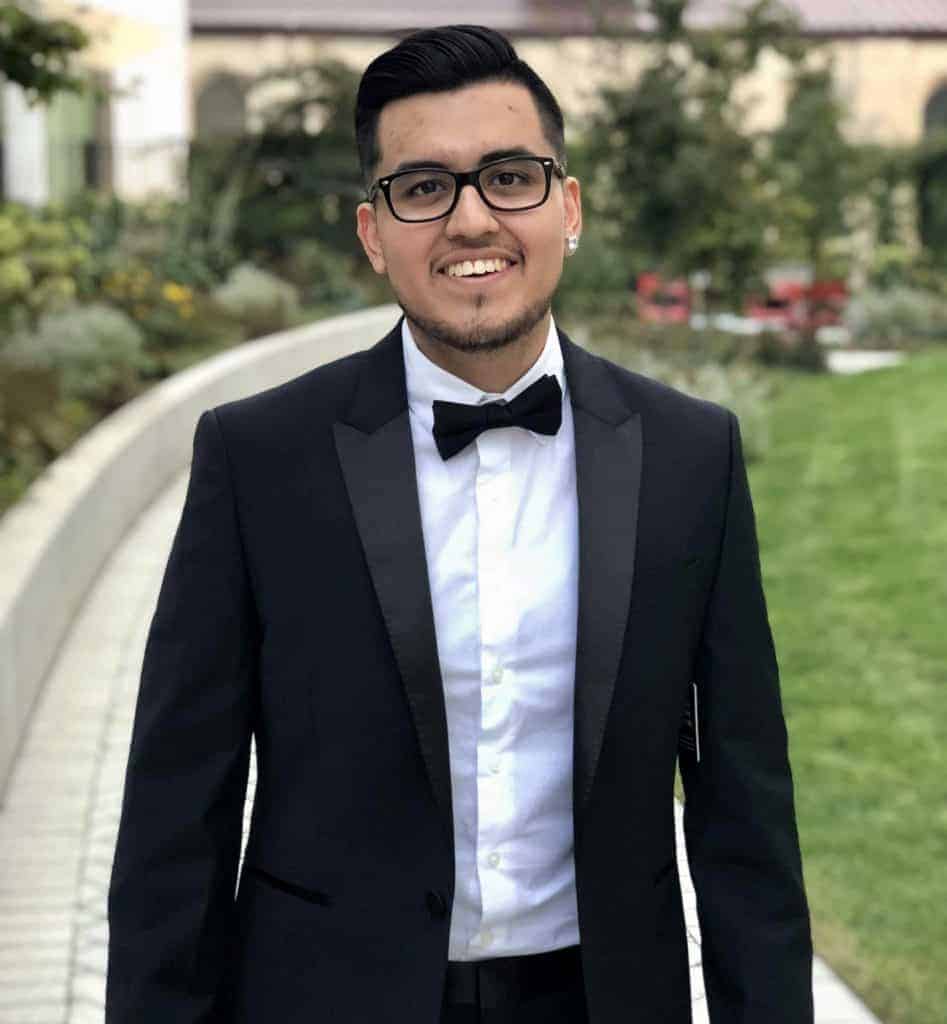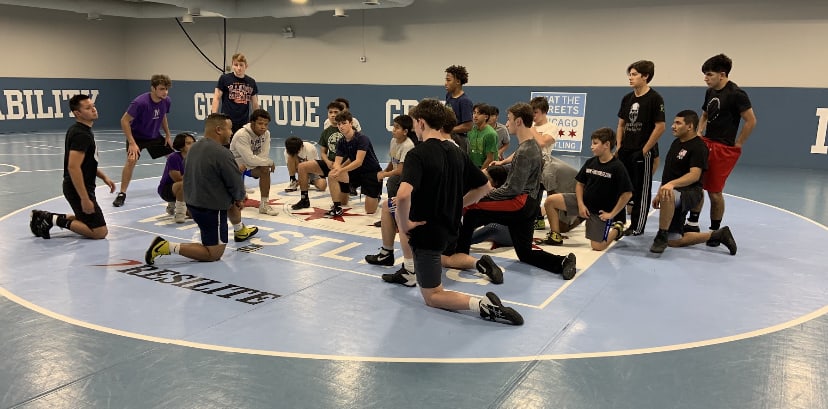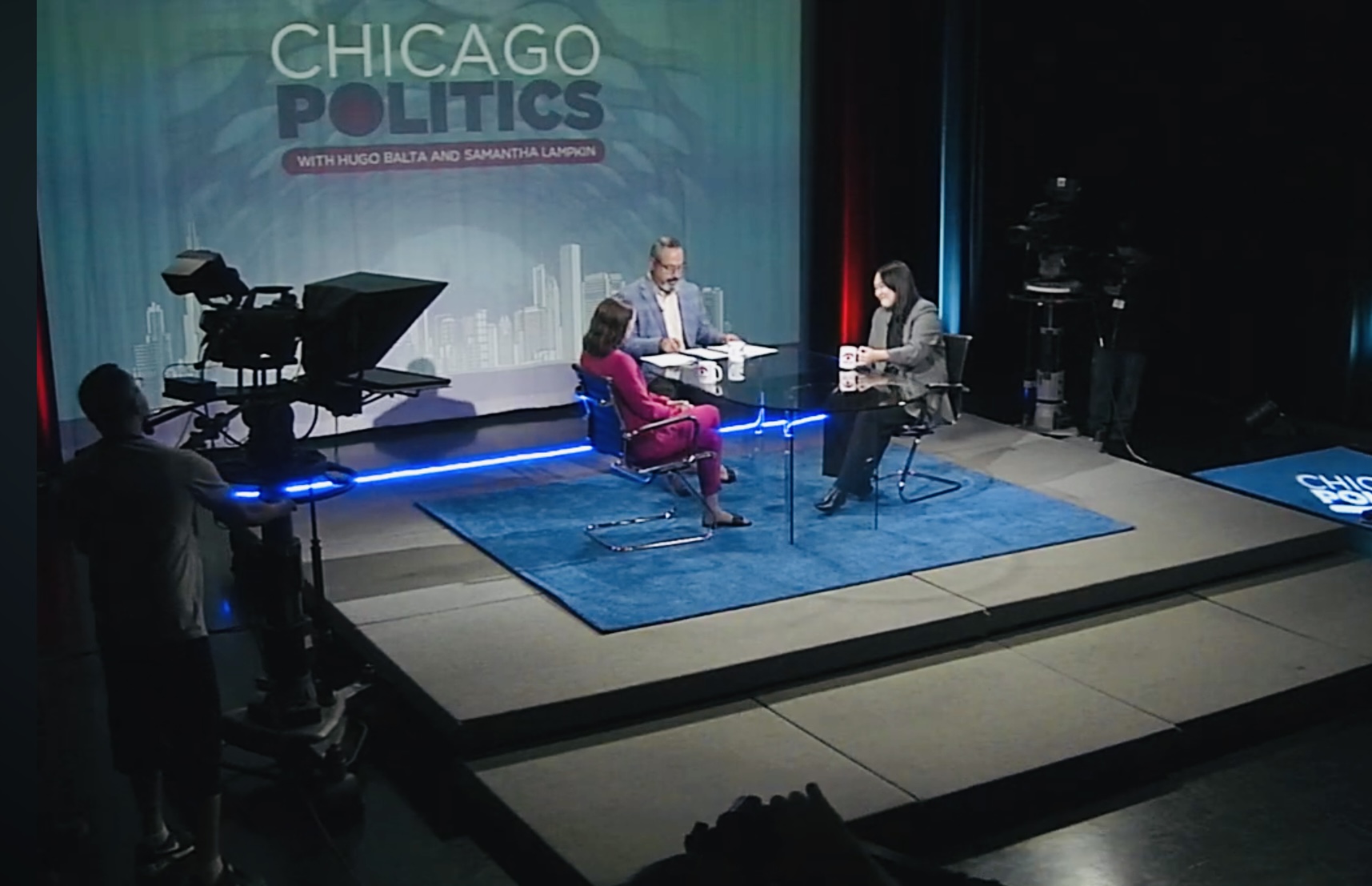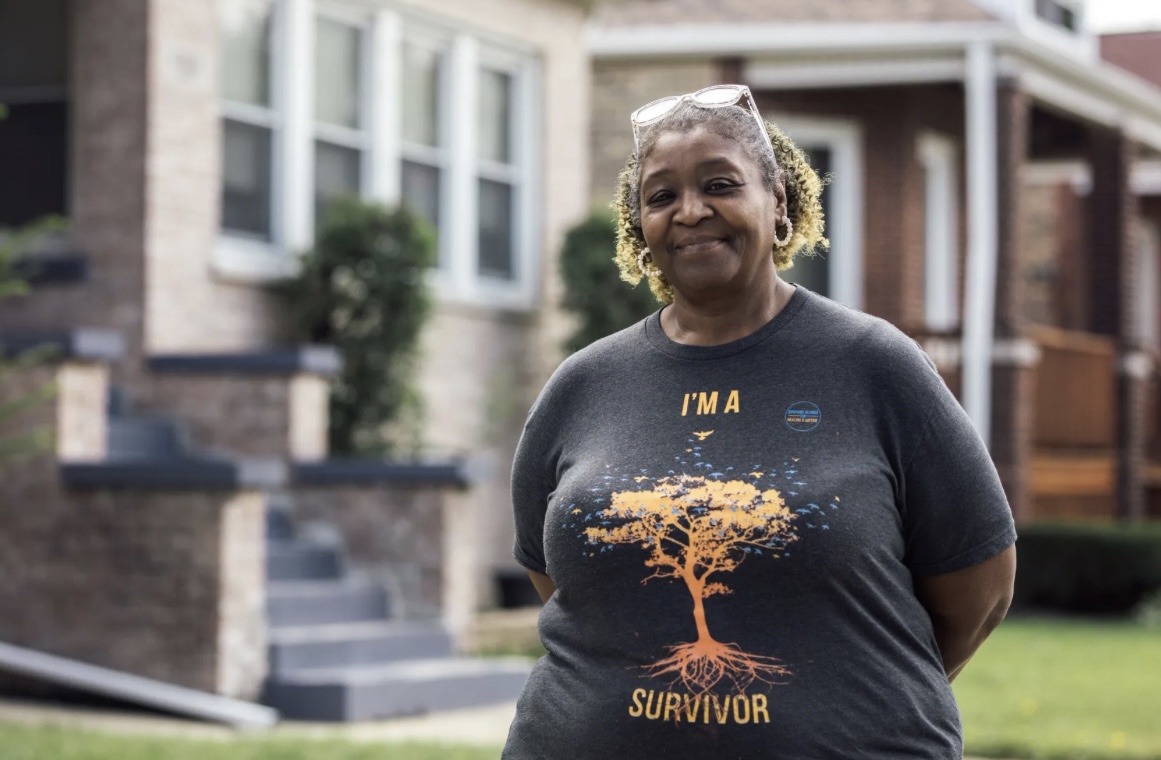“When I am faced with the choice of doing nothing or doing something, I will always choose to act. I am a person of action. I do not fear failure, for, in my life, failure is a myth. Failure exists only for the person who quits. I do not quit,” Men’s Head Coach Mike Boyd reads a passage from Andy Andrews’ The Traveler’s Gift. Boyd’s words echo inside the 10,000-square foot wrestling facility of Beat the Streets Chicago (BTSC) in Garfield Ridge, where an intense two-hour practice winds down.
“There’s a lot of life lessons you can learn from being on the mat or even just watching,” says Maggie Zuber, a freshman at Mother McAuley High School in the Mount Greenwood neighborhood. “The work you put in doesn’t make everything easier, but if you could go to a two-hour practice and then sprint laps, you can finish your algebra homework.” Zuber has wrestled at Beat the Streets Chicago for a year.
BTSC is a non-profit organization founded in 1997, the first and oldest program of its kind. Their goal is to empower youth through wrestling and create life champions. Students as young as five years old can be active and gain values such as accountability, gratitude, and the grit that translate into everyday life. Being a student goes hand in hand with being an athlete, as excellence on both the mats and school is the expectation.
Executive Director Mike Powell at the helm, BTSC looks to bring people of all walks of life together. “I spent my whole life building culture and community. We take a lot of pride in that. We want to be a melting pot. We want to be the best of what the city represents.”
In looking for ways to reach students from marginalized communities, BTSC partners with CPS Score!, an interscholastic athletics league for elementary schools serving predominantly Black and Latino neighborhoods.
Eliminating Barriers Exacerbated By COVID-19
The COVID-19 pandemic exacerbated the disparities faced by low-income communities and the existing barriers that students face. In an analysis done by Chalkbeat Chicago, it was highlighted that in elementary schools where 80 percent or more of the students are Hispanic-Latino, they have an average counselor caseload of 665 students, with some schools managing 1000 students or more. While the recommendation has a 250-to-1 counselor ratio in high schools, high schools predominantly Hispanic-Latino have a 277-to-1 counselor ratio.
The schools that face these hardships are also the ones that serve low-income communities. These students have fallen behind through virtual learning, as access to reliable internet and housing was another barrier for families. The Illinois State Board of Education presented how 17.8% fewer students met grade-level standards in math, while 16.6% fewer students met grade-level criteria in English language arts. Additionally, standardized test scores dropped for students in Illinois during the pandemic.
Powell recognizes that “kids that are behind in grades,” stressing that “We’re getting them tutoring and up to grade level.” In addition, high school students are learning how to apply to FAFSA and scholarships to schools with wrestling programs. Education programs also include the “On the Mat-Off the Mat” series, advising students on building credit and saving money.
Powell believes in the impact that wrestling can have on a child’s life, stating, “I know that exercise has proven to help self-esteem, and being part of something bigger than yourself is one of the most powerful things a human can ever do.” Additionally, the facility serves as a supplement from what the satellite neighborhood clubs offer. The personal connection established with students allows BTSC staff to mentor and guide them throughout their lives.
“It has really helped me speak out now and try new things. Freshman me would not shoot a takedown; it would be mostly defense. Wrestling has helped me grow and take more chances,” says Jenny Villagomez, a senior at Morton East High School in Cicero. She appreciates the impact the sport of wrestling has had on her life. “If you don’t take that shot you’re not going to get that point and you’re not going to win. It translates to real life because if I miss an opportunity or if I don’t do my homework, I won’t be able to do well on tests, with future opportunities, etc.”

Diestefano Loma is one of six fellows in the Journalism Camp: Covering Race, Ethnicity, and Culture sponsored by the Hortencia Zavala Foundation (HZF). The first-in-class free 12-week program led by the Owner/Publisher of the Latino News Network and twice president of the National Association of Hispanic Journalists (NAHJ), Hugo Balta provides practical guidelines for fair and accurate storytelling.
Diestefano is a first-generation college graduate from the University of Chicago working in the education access space. He looks to support low-income, first-generation, and students of color by bringing awareness to the disadvantages these students face when it comes to education in Chicago. A lifelong Chicagoan, he loves combining sports and storytelling, as well as studying the intersection between sports, race, culture, and politics.




